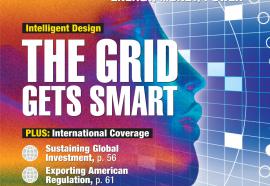Smart Grid, Smart Utility
The intelligent-grid vision is becoming clearer as utilities take incremental steps toward a brighter future.
Building the intelligent grid will require less technical innovation than it does strategic innovation—a characteristic not typically ascribed to U.S. regulated utilities. But the utility culture is changing—by necessity, if not by choice.




